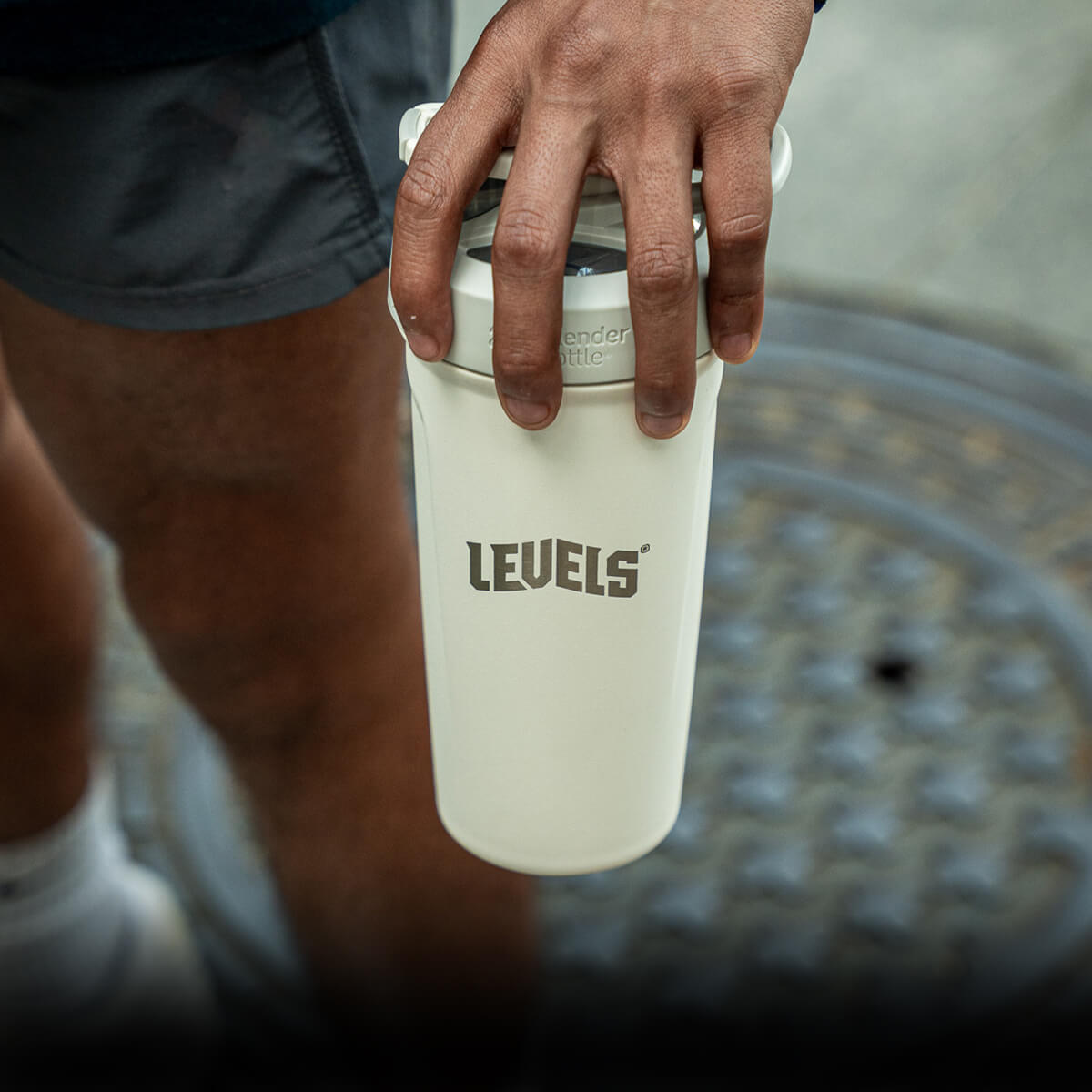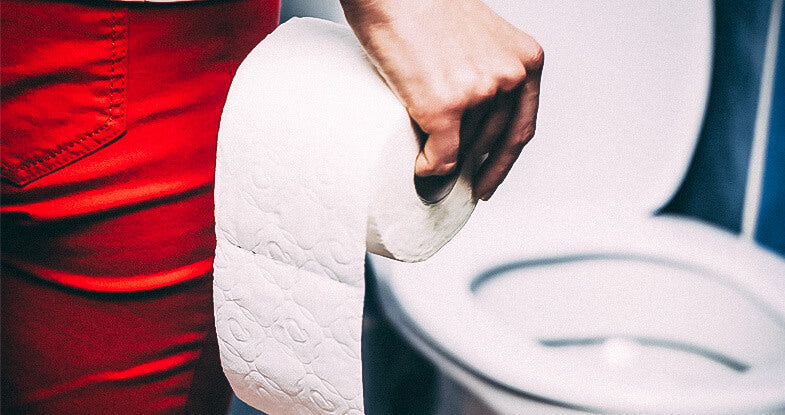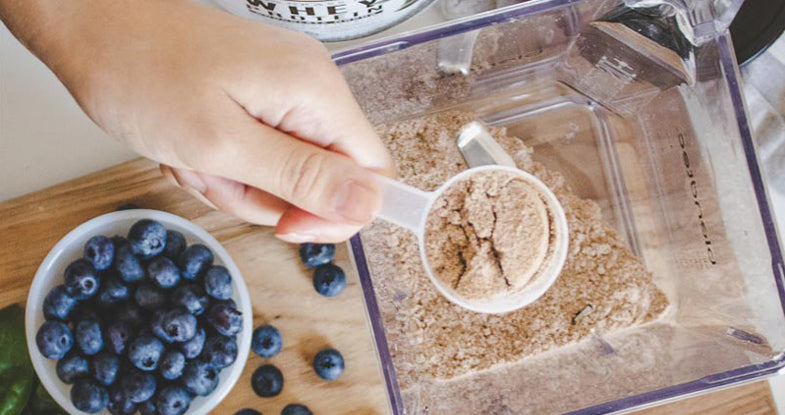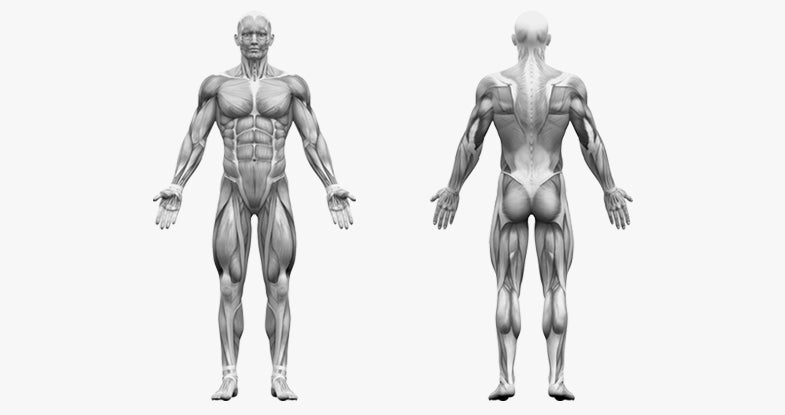Many people find that intermittent fasting increases mental clarity, boosts focus, and ignites fat-burning[*][*].
But fasting diarrhea or other digestive problems can ruin an otherwise enjoyable experience.
Intermittent fasting is supposed to make you healthier, so why might it cause diarrhea?
If you’ve had an upset stomach and suspect it may relate to fasting, there are several possible causes. They can range from simple mistakes to serious medical issues.
In this article, you’ll learn how to fix diarrhea while fasting and related issues like fasting nausea.
Intermittent Fasting Diarrhea: Why It’s a Problem
Not everyone deals with fasting diarrhea, but if you’ve had an experience with intermittent fasting and diarrhea, you should take it seriously.
First of all, diarrhea during fasting is unpleasant, and it can even discourage people from continuing to fast.
But even more worrisome is the fact that diarrhea can lead to dehydration[*][*].
When you fast, your body is more sensitive to disruption, and fasting in a dehydrated state is risky — especially if you are physically active or in a hot environment[*].

And finally, gastrointestinal symptoms while fasting can also point to problems you need to address.
These problems range from incorrect fasting practices to issues that require medical attention.
Next, you’ll learn what causes different types of intermittent fasting diarrhea and what you can do about it.
Diarrhea After Fasting: Reasons and How to Fix It
Diarrhea following a fast most often relates to the meal you choose to break a fast.
On the most basic level, eating too much or too quickly may upset your stomach, leading to diarrhea. This is the case even more so after extended fast periods.
Beyond the quantity of food and speed of eating, the macronutrients of your first meal also affect your digestion.
Eating too much fat (even from healthy fats) at a meal is a very common cause of diarrhea after fasting. High-fat meals can cause diarrhea due to excess bile secretion, or by overwhelming your body’s ability to digest fats[*].
Another factor to consider is your supplement usage.
Some supplements, like medium-chain triglycerides (MCTs) and magnesium, have a well-deserved reputation for causing diarrhea[*][*]. Taking them right after fasting is a recipe for GI issues.
But really, any supplement taken on an empty stomach shortly after a fast could lead to an upset stomach.
The takeaway? Be mindful of how you break your fast and what you put in your body. Eat slowly, stick with gentler food choices, and avoid or reduce supplements until your body readjusts to eating.

If troubleshooting your foods and supplements doesn’t do the trick, there might be an underlying gut health concern.
First, are you taking any prescription drugs? Some prescription drugs, particularly antibiotics, are associated with diarrhea[*].
A related issue, sometimes caused by antibiotics, is gut dysbiosis[*].
People with gut dysbiosis have an imbalance in their gut bacteria, without enough good bacteria in their microbiomes.
Gut dysbiosis is linked to diarrhea as well as more severe health problems, like inflammatory bowel disease[*].
Some research suggests that eating probiotic foods and taking probiotic supplements helps with diarrhea caused by antibiotics or gut dysbiosis[*][*].
If you think your diarrhea is caused by medication or gut dysbiosis, we recommend you speak to a doctor.
Lastly, food poisoning is another potential cause of diarrhea after fasting.
Evidence shows that food poisoning is widespread, and diarrhea may be the only symptom in milder cases[*][*].
Luckily, many cases are avoidable. You can reduce the risk of food poisoning by following food safety rules in the kitchen and washing your hands while cooking and before eating.
If you have other symptoms along with diarrhea, seek emergency medical care, because food poisoning can be dangerous or fatal.
Diarrhea While Fasting: Causes and Solutions
You can’t eat during a strict fast, so food isn’t the cause of diarrhea during fasting.
But other than that, diarrhea while fasting may have similar causes to diarrhea after fasting.
Technically, MCT oil supplements break your fast, but some people take them to boost fat-burning anyway.
MCTs and other supplements — again, especially magnesium — are the most common culprits for diarrhea that occurs during fast periods.
If you repeatedly experience bowel movements with loose stools in the fasted state, make sure to compensate by drinking extra liquids.
And you should avoid vigorous exercise, especially in the heat, when you may already be dehydrated from diarrhea.

When you break your fast, you can drink a homemade oral rehydration solution (ORS) to speed the rehydration process.
Oral rehydration solutions hydrate your body faster and more thoroughly than water, especially if you’re experiencing diarrhea[*].
Oral Rehydration Solution for Fasting Diarrhea
People who have severe diarrhea while fasting should break the fast and drink a full serving of oral rehydration solution.
Here’s a simple, science-tested ORS recipe that saves lives around the world every day[*]:
- 1 liter or 1 quart of water
- 6 level teaspoons of table sugar
- 1/2 teaspoon of salt (preferably sea salt, if possible)
- Optional: lemon or lime juice to taste
- Optional: 1/4 teaspoon of potassium chloride (available as “No Salt” or salt substitute at grocery stores)
- Optional: one serving of zinc dietary mineral supplements
Heat the water, then add the sugar, salt, and potassium (if you have it) and stir. The zinc can be added to the solution or taken separately. Refrigerate if you aren’t drinking immediately.
If you’re planning to drink the ORS immediately, heat just a few ounces of water, stir in the ingredients, and add the rest of the water to cool down the mixture.
If you experience diarrhea while fasting repeatedly, talk to a doctor.
Fasting Nausea: What It Means and How to Avoid It
Nausea during fasting is usually less serious than fasting diarrhea, but it can be extremely unpleasant.
As with diarrhea, you should begin by considering what you’re ingesting during fasts. Start by avoiding all supplements while fasting and see if that resolves the nausea.
Certain beverages are another likely cause of fasting nausea.
Coffee on an empty stomach often makes people feel ill. The reason is that coffee has a high concentration of tiny particles in suspension, which can irritate your gut lining. Usually, nausea due to coffee passes fairly quickly.

And drinking tea on an empty stomach can also cause nausea[*].
White, green, and black teas are high in tannins, a type of bitter antioxidant found in plants[*]. Tannins may have health benefits, but can also irritate your stomach and cause nausea[*].
If you think coffee or tea are causing your nausea, try avoiding them temporarily, sipping more slowly, or switching to another type of caffeinated beverage.
Physical activity is another reason fasting nausea can occur. If you train too intensely or get overheated, you may feel sick.
Remember that your body doesn’t have as much energy available in the fasted state[*]. That’s why fasted exercise should usually be low-intensity.
Conclusion: Does Fasting Cause Diarrhea?
Fasting does not cause diarrhea in and of itself. Diarrhea is not a side effect of fasting.
But diarrhea or nausea during intermittent fasting can provide valuable hints about whether or not you’re fasting correctly, as well as possible underlying problems.
Make sure to pay attention to clues, like how long it lasts and how frequently it occurs, as you investigate potential causes.
A homemade oral rehydration solution (ORS) is a good idea to address dehydration caused by diarrhea.
And if you can’t resolve the problem on your own, consider speaking to a physician.














